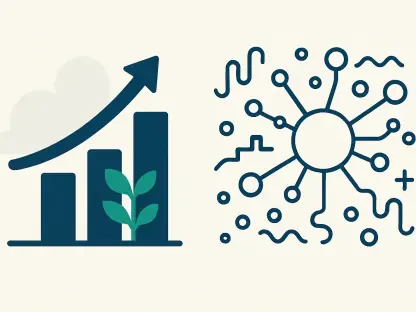In the rapidly changing landscape of business risks, directors and officers (D&O) are continually adapting their insurance priorities to address emerging threats. The latest Directors and Officers Liability Insurance Survey conducted by Willis, in collaboration with Clyde & Co, provides new insights into these shifting priorities. This comprehensive survey reveals that directors and officers worldwide are now placing a heightened emphasis on health, safety, and cybersecurity concerns. These changes reflect the growing complexity and importance of managing risks effectively in today’s business environment.
Emphasis on Health and Safety Risks
Physical Workplace Risks and Employee Wellbeing
Health and safety risks have become a leading priority for 80% of directors and officers globally, with particular focus on physical workplace hazards. Cited by 43% of respondents, physical workplace risks are crucial due to the direct impact they have on employee safety. Ensuring that workplaces are free of potential hazards and comply with safety regulations is essential to mitigating these risks. Alongside this, there is a growing recognition of the importance of mental health and wellbeing.
Employee mental health is now a significant concern, with 28% of directors highlighting work-related factors and an additional 12% citing personal matters that influence mental health. Organizations are increasingly implementing measures to support employee wellbeing, recognizing its direct correlation to productivity and overall performance. By addressing both physical and mental health risks, companies can create safer and more supportive work environments, leading to enhanced employee satisfaction and reduced liability.
Emerging Litigation Concerns
For the first time since 2018, civil litigation and third-party claims have surged as top concerns among directors and officers. The survey found that 63% of respondents view these as major organizational risks. This increase in litigation worries is particularly pronounced among smaller organizations, those with revenues under $50 million and between $1 billion and $5 billion. In contrast, larger organizations with revenues exceeding $5 billion tend to focus more on issues such as diversity, equity, and inclusion (DEI), as well as bribery and corruption.
This disparity in focus reflects the varying operational challenges faced by businesses of different sizes. For smaller entities, the financial and reputational implications of litigation can be catastrophic, necessitating robust measures to mitigate these risks. Conversely, larger organizations are more attuned to regulatory compliance and ethical considerations, which are critical in maintaining their global standing and market trust. Understanding these diverse priorities enables companies to tailor their D&O insurance strategies effectively.
Shifting Regional Trends and Emerging Issues
Focus on DEI and Climate Change
Regional trends identified in the survey highlight a shift in priorities across different parts of the world. In regions like Asia, North America, and the Middle East, concerns over climate change have diminished, making way for more pressing issues. Particularly in Great Britain, North America, and Africa, diversity, equity, and inclusion (DEI) have risen in importance. Companies in these regions are increasingly committed to fostering inclusive workplaces that embrace diversity and equity.
The shift away from climate concerns could be indicative of the immediate pressures and regulatory demands associated with DEI initiatives. As companies strive to build more equitable workplaces, they are focusing on creating environments where all employees feel valued and respected. This emphasis on DEI not only enhances organizational culture but also mitigates risks related to discrimination and workplace inequities.
Growing Human Rights and Supplier Practices Concerns
Human rights violations within business operations have seen a significant rise in focus, reflected by the increase from 23% in previous years to 62% currently. Similar growth is observed in concerns over supplier business practices, climbing from 27% to 59%. These trends underscore a broader awareness of ethical considerations in global supply chains and business operations.
Businesses are increasingly held accountable for the actions of their suppliers, necessitating rigorous due diligence and monitoring to ensure compliance with ethical standards. The growing focus on human rights aligns with the global push for responsible business practices, emphasizing the need for transparency and accountability. By addressing these concerns, companies can safeguard their reputations and build trust with stakeholders.
Cybersecurity and Technological Risks
Increased Emphasis on Cybersecurity
Cybersecurity and data privacy remain critical areas of concern, with 77% of directors and officers regarding cyber-attacks and data loss as significant risks. Despite this, there are notable gaps in board expertise, indicating a need for increased focus and education on cybersecurity matters. As cyber threats continue to evolve, businesses must invest in robust cybersecurity measures to protect sensitive data and maintain operational integrity.
The rise in cyber threats, from ransomware attacks to data breaches, highlights the vulnerability of businesses in the digital age. Boards must prioritize cybersecurity, ensuring they are well-equipped to oversee and respond to these challenges. This includes regular training, implementing advanced security technologies, and developing comprehensive incident response plans. By doing so, companies can mitigate the risks of cyber incidents and protect their financial and reputational assets.
Artificial Intelligence and Board Knowledge
Artificial intelligence (AI) is perceived as a less immediate risk, with only 51% of respondents viewing it as very or extremely important. It also ranks lowest in areas where directors believe their boards are adequately knowledgeable. Despite this, the significance of AI is expected to grow as technology advances and new regulatory frameworks emerge. Businesses must stay ahead of these developments to leverage AI benefits while mitigating associated risks.
AI’s transformative potential in various industries cannot be overlooked. As it becomes more integrated into business operations, the associated risks and ethical considerations will likely become more pronounced. Boards should proactively seek to enhance their understanding of AI, ensuring they are prepared to navigate the complexities it introduces. This includes staying informed about regulatory changes, ethical implications, and best practices for AI deployment.
Adapting to an Evolving Risk Landscape
Proactive Approaches to D&O Insurance
The survey underscores the shifting priorities among directors and officers toward health, safety, and social risks, alongside increasing cybersecurity challenges. Angus Duncan, a global D&O coverage specialist at Willis, emphasizes that despite rising litigation concerns, cost remains the primary driver for D&O insurance decisions. Proactive approaches can help companies optimize coverage and mitigate risks effectively.
By adopting forward-thinking strategies, businesses can better navigate the complex risk landscape. This involves continuous risk assessment, staying informed about emerging threats, and tailoring insurance coverage to address specific needs. Proactive risk management not only enhances organizational resilience but also ensures that companies are well-positioned to respond to unforeseen challenges.
The Evolving Complexity of Risks
In the ever-evolving landscape of business risks, directors and officers (D&O) are constantly adjusting their insurance priorities to tackle new threats. The recent Directors and Officers Liability Insurance Survey, carried out by Willis in partnership with Clyde & Co, sheds light on these changing priorities. This in-depth survey uncovers that directors and officers globally are now placing greater focus on health, safety, and cybersecurity issues. These shifts underscore the increasing complexity and critical nature of effectively managing risks in today’s business climate. Furthermore, the survey highlights that as businesses face more sophisticated cyber threats and navigate complex regulatory environments, the role of D&O insurance becomes even more pivotal. Addressing these emerging concerns is essential for safeguarding organizations against potential liabilities and ensuring long-term stability and success. The findings indicate a paradigm shift, emphasizing proactive measures to mitigate risks and safeguard both assets and reputation in the modern, dynamic business world.









